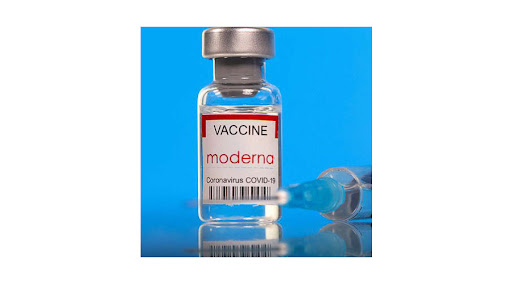Luke Andrews, the health correspondent for the UK’S Daily Mail wrote today, that scientists are investigating whether a vaccine for cancer can be developed using the same mRNA technology as in the COVID-19 lullaby.
A team at Duke University in Durham, North Carolina, has begun testing jabs that can recruit the immune system to latch onto and kill cells that are replicating uncontrollably, stopping the disease in its tracks.
The potential vaccines are being heralded as a 'game-changer' that could help overcome America's second-biggest cause of death.
The research comes as part of a larger movement to incorporate mRNA technology into more forms of treatment after the long-unused technology emerged during the pandemic due to its ease of development and manufacturing.
Zachary Hartman an assistant professor in immunology at Duke University, North Carolina, said: 'If we can roll this out in the clinic for cancer, we think it could be a game-changer'
'If we can roll this out in the clinic for cancer, we think it could be a game-changer,' Dr Zachary Hartman, an assistant professor in immunology at Duke, told WGHP.
The mRNA shots, manufactured by Pfizer, which partnered with the German-based BioNTech, and Moderna, proved to be one of the most effective developed.
While the technology was discovered decades ago, it largely went unused before the pandemic brought it to the forefront of vaccine development.
What is a cancer vaccine? Are any available?
A cancer vaccine aims to recruit the immune system to fight off the illness.
Cancer is not triggered by a virus, but occurs when cells start dividing un-controllably due to a mutation.
These cells may have a unique antigen on their surface compared to healthy ones.
Cancer vaccines display this to the immune system, sparking an immune response.
Scientists say this then leads to the immune system hunting out and killing cancerous cells.
Only one cancer vaccine — for prostate cancer — is available to date.
It involves white blood cells being extracted from the body and exposed to antigens from cancerous cells.
These are then re-administered where scientists hope they will fight off the illness.
But the treatment, available to late-stage cancer patients, does not appear to lead to tumors shrinking and only gives men who receive it a few additional months to live.
Now, companies and scientists are further exploring how to use mRNA, and whether it can hold the answers to solving some of the medicines' biggest mysteries.
''Remember, people were expecting that a successful vaccine would provide protective immunity to about 50 percent of patients,' Hartman said of the mRNA Covid shots.
'(But) the first two mRNA vaccines provided over 90 percent protection, a remarkable achievement.'
Currently, only a jab against prostate cancer for those with the disease is available, which prolongs patients' lives by a few months.
Hartman believes that mRNA could change the way cancer is treated.
'I think that within my lifetime we will see cancer as a more managed disease,' he told the North Carolina-based local news station.
'We’re going to turn the dial and be able to treat more and more of these kinds of cancers in the coming years and decades to where it’s not quite the same sentence it was 20 or 30 years ago.
'I don’t think we’ll ever be able to rid the world of cancer, but I think we will be able to prevent a lot of cancers and then a lot of cancers that we’ll be able to catch early and treat, we’ll have very effective treatments.'
Duke University scientists are currently testing an mRNA vaccine for breast cancer — which leads to the body making many more proteins, potentially triggering a stronger immune response.
Source UK Daily Mail.
Yours sincerely
Frank Short



